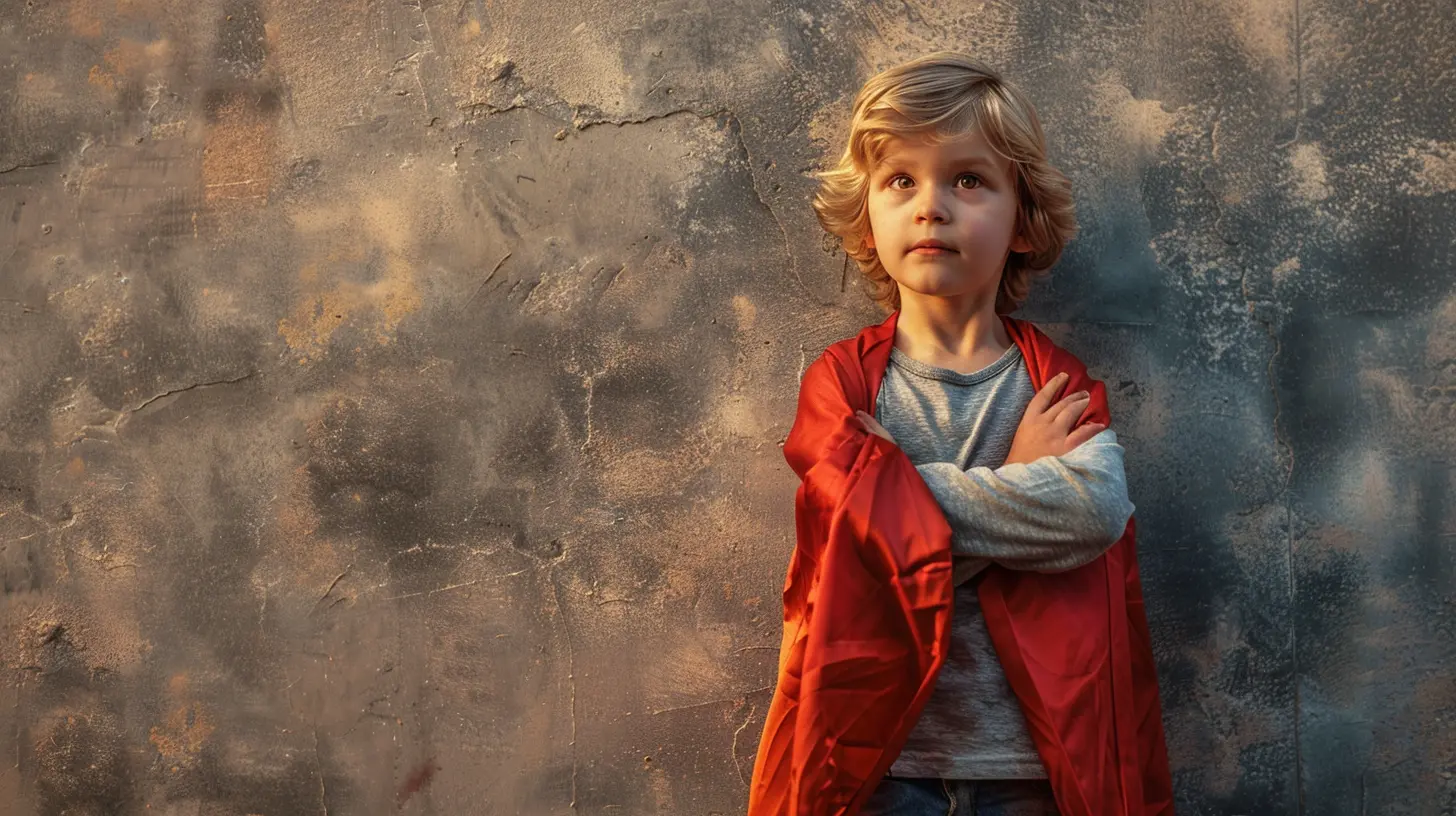Empowering Children to Make Better Choices
29 October 2025
Ever watched your toddler try to “help” by pouring orange juice into your laptop, and thought, “Wow, I should probably start working on those decision-making skills”? If not, congratulations – you have superhuman children. For the rest of us raising little hurricanes dressed as humans, empowering children to make better choices isn’t just a noble parenting goal – it’s survival.
Let’s face it: kids don’t come with a user manual. And even if they did, it would probably be full of crayon scribbles and glitter. So how do we help them become responsible mini-humans who can navigate life without treating a fork and an electrical socket as best buddies?
Buckle up, parents. We’re diving into the beautiful chaos of teaching kids to make better choices — with a side of sarcasm, sprinkled with real-talk. Because let’s be honest, parenting’s hard enough without pretending we’ve got it all figured out.
Why Bother Teaching Kids to Make Good Choices Anyway?
Simple. Because one day, they’re going to be out in the world — making snack decisions without your approval, choosing friends without your creepy background checks, and potentially selecting outfits that involve socks with sandals.But seriously, empowering children to make better choices builds their confidence, sharpens their critical thinking, and helps them take responsibility (yes, even for that broken vase they swear the cat broke). It’s not about control. It’s about guiding them toward independence — even if that means letting them fail a little along the way.
Letting Go: Why “Because I Said So” Doesn’t Work Forever
Ah, the classic phrase we all swore we'd never say — until we did. Spoiler alert: kids don’t respond well to dictatorship (unless it comes with snacks).If you want your child to think for themselves — not just follow orders like a baby robot — you’ll have to explain the why behind your guidance. Yes, it requires more bandwidth than barking commands, but the payout is huge. They learn to process consequences, see patterns, and eventually (hallelujah!) make their own good calls.
Pro Tip: Next time they question your rules, ditch the knee-jerk “because I said so.” Instead, try, “Here’s why I think this is important. What do you think?” It might just blow their tiny, curious minds.
Start with Small Decisions (So They Can Only Slightly Wreck Things)
Giving kids age-appropriate choices is a game-changer. Want them to feel empowered? Toss them the reins — on small stuff. Think: “Would you like the red cup or the blue cup?” or “Do you want to brush your teeth now or in five minutes?”You're still the puppet master behind the options (shh, they don’t need to know). But by letting them choose, you're sneakily teaching them that their opinion matters. It’s Decision Making 101 without the scary final exams.
Quick Win: Let them pick their outfits. Yes, even if it means a tutu with rain boots in July. Fashion faux pas now = decision-making genius later.
Natural Consequences: The Universe’s Parenting Assistant
Here’s the good news: you don’t have to discipline every poor choice. Let nature do it for you. Didn’t do homework? Enjoy that awkward conversation with the teacher, kiddo. Refused a jacket on a chilly morning? Welcome to freezing-ville, population: you.Letting kids experience the natural outcome of their decisions helps them connect the dots between choices and results. Just don’t let “natural consequences” turn into “emotional trauma.” You’re still the parent, not a medieval punishment dealer.
Word of caution: Don’t let them figure out "what happens when I hit my brother" the hard way. That one still requires good old-fashioned intervention.
Give Them a Seat at the “Family Boardroom”
Want to blow your child’s mind and boost their confidence? Invite them into real-life decisions. Plan the family weekend together. Let them choose dinner (but prepare for macaroni-and-cheese three weeks straight). Discuss budgeting for a new toy.When kids feel like they have a voice in the family, they not only grow more confident — they grow more responsible. Because nothing says “life lesson” like realizing you can’t afford both the toy AND the weekly ice cream.
Model the Behavior (AKA Pretend You Always Know What You're Doing)
Here’s the part you might not love: kids are watching everything. Not just your words. Your actions. Your moods. That epic meltdown over slow Wi-Fi? They saw that. And guess what? They’re taking notes.So if you want your child to make better decisions, show them how it's done. Narrate your thought process. “I really want to buy this fancy coffee maker, but I’m saving for vacation. Hmm… let’s go with self-control today.” Bonus points if you say it in front of that coffee machine you secretly named Carl.
Lead by example, not perfection. They don’t need a flawless role model — they need a real one.
Choices Need Boundaries (AKA The Safety Fences of Freedom)
Letting kids choose everything is…wild. Giving them freedom without guidance is like handing them the keys to a bulldozer and saying, “Have fun!” Choices must come with boundaries. Structure isn’t control — it’s comfort.Set clear expectations: “You can play your video game for 30 minutes after homework.” Give clear consequences: “If we yell during quiet time, we lose quiet time privileges tomorrow.” And stick to it. Because once kids realize your threats are as empty as your coffee cup at 7am, you’re toast.
Mistakes Are Learning Gold Mines (Let Them Dig)
As parents, we often want to protect our kids from failure like it’s a venomous snake. But here’s the plot twist: failure teaches better than success ever could.When kids mess up — and they will mess up — don’t rush in with the rescue helicopter. Let them sit in the mess a bit. Then talk it through. What went wrong? What would you do differently?
Mistakes are like puzzles. If they solve them, they come away sharper, stronger, and better equipped for next time. If you always solve them? They’ll grow up expecting someone else to fix everything. Yikes.
Give Praise (But Not the Trophy-for-Breathing Kind)
Positive reinforcement works. But in a world where kids get medals for participating in a three-minute staring contest, let’s keep it real.Instead of generic “good job,” aim for specific praise: “I'm proud of how you thought it through and chose not to interrupt.” It reinforces how the decision was smart, not just that it happened.
Real praise builds internal motivation. Fluffy praise? That just builds an ego with no foundation.
Encourage Curiosity (Even When It’s Annoying)
Yes, we know. The 142 “why” questions before lunch can make you want to relocate to a cabin with no Wi-Fi. But curiosity is the soul of good decision-making.Ask questions right back. “Why do you think that happened?” “What would you do if you were the teacher in that situation?” You’ll be stunned at how deep your child’s brain actually goes — when it’s not obsessing over slime videos.
Maybe they're not being annoying. Maybe they're just becoming little philosophers. (Who occasionally wipe their boogers on the dog.)
The Long Game: Raising Decision-Makers, Not Obedient Drones
Here’s the deal. Our goal isn’t to raise kids who always do what we say. It’s to raise kids who do the right thing — even when we’re not watching. That’s the long game.Empowering children to make better choices is a journey, not a race. There will be bumps, wrong turns, and epic tantrums in Target aisles. But every choice — good or not-so-great — is a learning opportunity.
And no, they won’t always make the decision you’d make. Your job isn’t to control the destination. It’s to hand them the map, teach them to read it, and trust they’ll figure out how to avoid the swamps of doom.
Real Talk: Some Days They’ll Still Choose Chaos
Let’s not kid ourselves. You could be the Dalai Lama of parenting and still find your kid trying to drink bubble bath or arguing that a banana counts as bedtime “dessert.”That’s okay.
Empowerment doesn’t mean perfection. It means progress.
And if you’ve made it to the end of this article without yelling, “Because I said so!” — you deserve some empowering yourself. Maybe a nap. Or at least coffee. In the red cup. Because you're still in charge of something, dang it.
Final Thought: Trust the Process (and Also Buy More Coffee)
Empowering kids to make better choices won’t happen overnight. It takes patience, consistency, and enough deep breaths to pass out. But slowly, surely, they’ll start to surprise you — in the good way.One morning, they’ll offer the last pancake to their sibling. Or say no to peer pressure. Or remember to bring a jacket (!). And you’ll think, “Hey… maybe this chaos is working.”
And it is.
So keep showing up, keep guiding, and keep trusting that your messy, wonderful, wild little human is learning exactly what they need — one questionable outfit and impulsive decision at a time.
all images in this post were generated using AI tools
Category:
Positive DisciplineAuthor:

Karen Hurst
Discussion
rate this article
1 comments
Zina Wolfe
Empowering children to make better choices involves nurturing their critical thinking and decision-making skills. By providing age-appropriate guidance and encouraging independence, parents can foster resilience and confidence, ultimately shaping children who are not only self-reliant but also socially responsible.
November 1, 2025 at 4:47 AM

Karen Hurst
Thank you for your insights! Nurturing critical thinking and independence indeed lays the foundation for resilient, socially responsible children.


